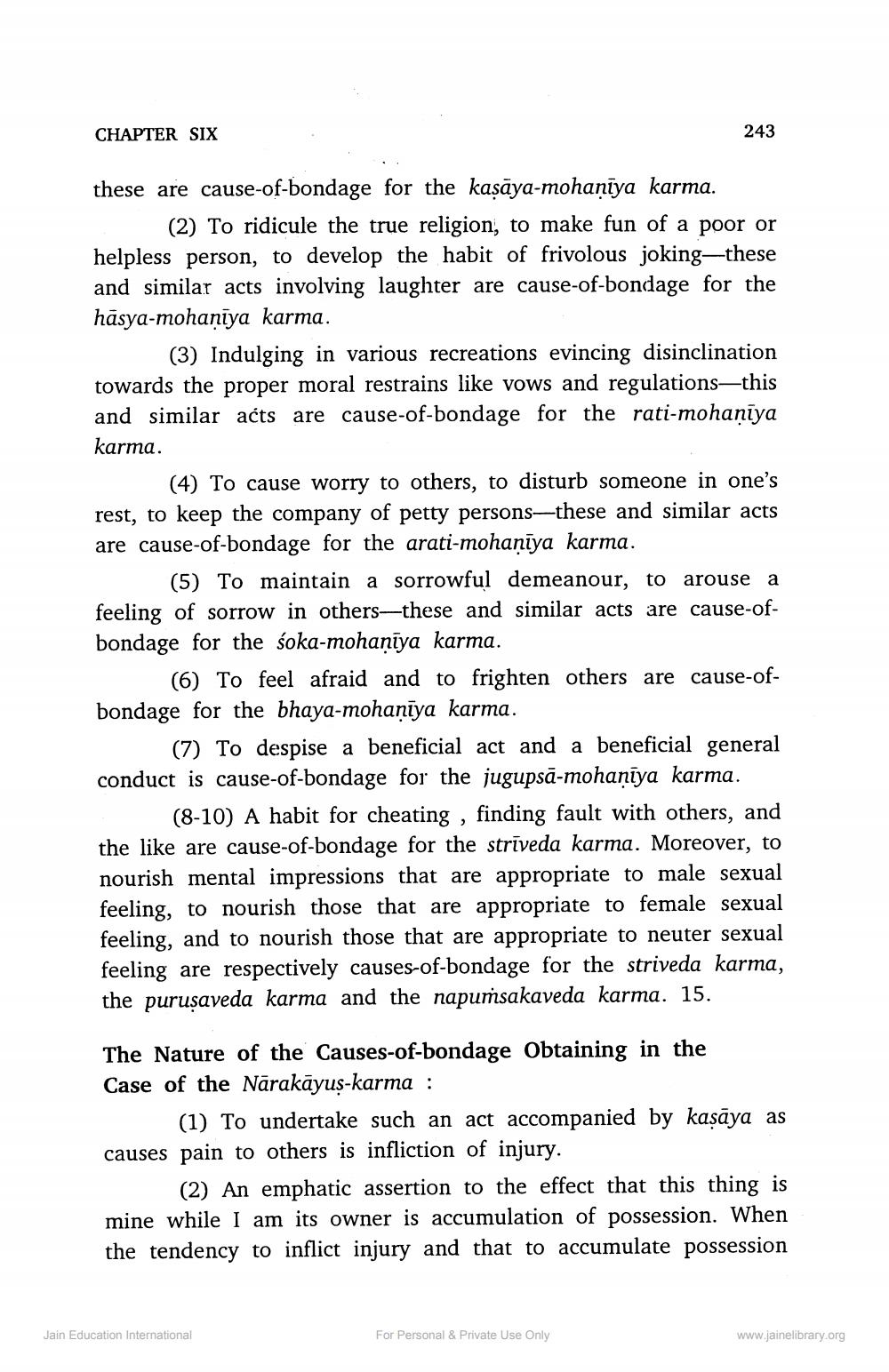________________
CHAPTER SIX
243
these are cause-of-bondage for the kaṣāya-mohaniya karma.
(2) To ridicule the true religion, to make fun of a poor or helpless person, to develop the habit of frivolous joking—these and similar acts involving laughter are cause-of-bondage for the hāsya-mohanīya karma.
(3) Indulging in various recreations evincing disinclination towards the proper moral restrains like vows and regulations—this and similar aćts are cause-of-bondage for the rati-mohanīya karma.
(4) To cause worry to others, to disturb someone in one's rest, to keep the company of petty persons—these and similar acts are cause-of-bondage for the arati-mohaniya karma.
(5) To maintain a sorrowful demeanour, to arouse a feeling of sorrow in others—these and similar acts are cause-ofbondage for the soka-mohaṇīya karma.
(6) To feel afraid and to frighten others are cause-ofbondage for the bhaya-mohanīya karma.
(7) To despise a beneficial act and a beneficial general conduct is cause-of-bondage for the jugupsā-mohaniya karma.
(8-10) A habit for cheating , finding fault with others, and the like are cause-of-bondage for the strīveda karma. Moreover, to nourish mental impressions that are appropriate to male sexual feeling, to nourish those that are appropriate to female sexual feeling, and to nourish those that are appropriate to neuter sexual feeling are respectively causes-of-bondage for the striveda karma, the puruṣaveda karma and the napumsakaveda karma. 15.
The Nature of the Causes-of-bondage Obtaining in the Case of the Nārakāyus-karma :
(1) To undertake such an act accompanied by kaşāya as causes pain to others is infliction of injury.
(2) An emphatic assertion to the effect that this thing is mine while I am its owner is accumulation of possession. When the tendency to inflict injury and that to accumulate possession
Jain Education International
For Personal & Private Use Only
www.jainelibrary.org




